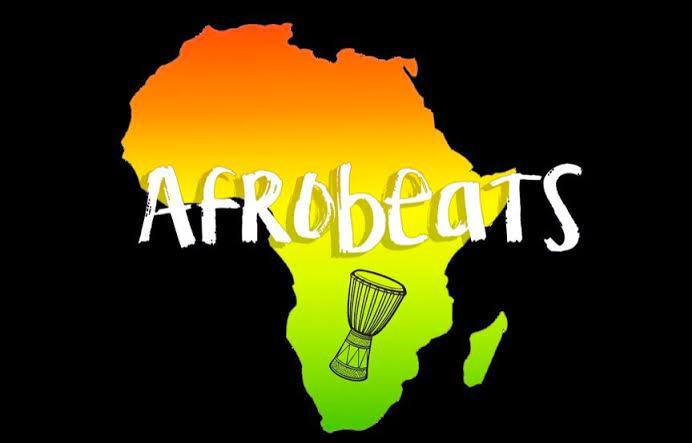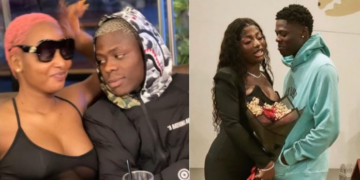Afrobeats, a vibrant genre of music from West Africa, emerged in the 2000s, primarily in Nigeria, Ghana, and the United Kingdom. This dynamic genre is a fusion of various sounds and styles, including highlife, azonto, juju, hiplife, naija beats, banku music, and R&B. Although it is often confused with “Afrobeat,” pioneered by Fela Anikulapo Kuti. However, Afrobeats has its distinct identity. With roots in multiple cultures across Africa and Europe, Afrobeats cannot be attributed to a single artist; instead, it embodies the collective sounds and traditions of the people.
Consequently, the 2010s marked a pivotal turning point for Afrobeats, as international artists and producers began incorporating its rhythms into their music. Notable collaborations, such as Drake’s “One Dance” featuring Wizkid, achieved millions of streams and catapulted Afrobeats onto the global stage. The genre’s popularity soared, transcending African borders and captivating audiences in the United States. Concerts and shows by Afrobeats pioneers like Wizkid, P-Square, and others connected with diasporic Africans and enthusiasts worldwide. As Africans traveled abroad, Afrobeats spread, fueled by the desire for cultural connection and shared identity. Today, Afrobeats continues to thrive, blending with diverse styles and establishing its position as a prominent global genre.
In lieu of the foregoing, there have been a number of factors that have championed the growth and widespread of Afrobeats, both home and abroad, which people have given little or no attention to. They are stakeholders in the music industry, which in the history of Afrobeats have championed both the underground and global success of Afrobeats. And the number one that takes a lead in this course is the Record stores.
Record stores, where people get to purchase CD players, diskettes, music tapes, and cassettes have played an essential role in disseminating Afrobeats to the world and beyond. Records stores such as EMS Records, Music Plaza, Terra Kulture, and Jazzhole in Lagos, Nigeria have distributed Afrobeats records across West Africa in past and recent years. By extension, Stern’s Records in the UK introduced Afrobeats to European audiences. Therefore, record stores in Nigeria and Ghana have served as hubs for music discovery lately, while these stores helped build a loyal fanbase and facilitated the growth of Afrobeats.
Considerably in the list of stakeholders are the DJs and radio presenters who helped spread the wings of Afrobeats across-the-board. DJs have been found in several events to spice up the vibes with music, and while at it, they subconsciously introduce Afrobeats to people in the events. You get to find them in night parties, clubs, Owanbe, birthdays, home-warming, etc., popularizing Afrobeats. One can even describe them as one of the PR agents of Afrobeats in the music industry. DJ Jimmy Jatt, a Nigerian DJ, championed Afrobeats in Nigerian clubs and radio. DJ Black, a Ghanaian DJ, promoted Afrobeats on Ghanaian radio. Radio stations like Raypower FM and Sound City FM in Nigeria and Joy FM in Ghana played Afrobeats extensively. These DJs and radio presenters helped increase Afrobeats’ visibility and appeal.
In addition, record labels from the inception of the music industry in Nigeria have invested in artists; but recently, the number of record labels that get to sign deals with established and up-and-coming Afrobeats artists has increased. Recently, we have record labels such as Mavin Records, YBNL Nation, etc., in Nigeria that launched the careers of artists in past and recent times, including Tiwa Savage, D’banj, Ricardo Banks, Rema, Ayra Starr, AG Baby, Fireboy, and Wizkid, respectively. These labels have often provided financial support, marketing, and distribution, to ensure Afrobeats artists reach wider audiences.
Ultimately on the list are the music critics, who have helped shape Afrobeats’ global perception. Music critics have, through their writership skills, changed the narratives of Afrobeats and also helped to better understand the nature and dynamics of Afrobeats through critical analysis and reviews of Afrobeats artists’ music productions. The sounds have been appreciated; the lyrics have been reviewed, and the whole body of creative outbursts of the artists has been examined over time, as this helps the global audience get fascinated by their music through the works of music critics. Music journalists like Biodun Kupoluyi and Ngozi Rwubianwu have covered Afrobeats’ growth in the past.
However, recently, music critics have arisen from different nooks and crannies of Nigeria, some based in Nigeria, while others abroad; and these people have immensely contributed to the growth of Afrobeats in Africa and beyond. For Oyebanji Akins, he is a Nigerian-US-based. Oyebanji Akins, (also known as Olumide E Akinlolu), is a media influencer, podcaster, writer, music critic, and entrepreneur. He is the CEO of “African Root Store LLC” and founder of “Connecting the Dots Among Blacks” podcast (CTDAmongBlacks). Akins reviews music projects, provides constructive criticism on cultures and trending topics, and has interviewed notable artists like Burna Boy and Wizkid.
With this, Oyebanji Akins has been revolutionizing the Nigerian entertainment industry with his bold and genuine approach to music and movie reviews. By staying true to himself, he challenges the status quo and offers a refreshing perspective that resonates with diverse audiences through his social media spaces, especially on Twitter and Instagram, where he gets to randomly pick an artist’s works and do critical justice to it, with no sentiments. Through his emotional intelligence, he has been able to handle clapbacks and controversial remarks from his followers and metizens, who stoutly frown upon or are strange to critique.
As a trailblazer in Nigerian entertainment criticism, Oyebanji Akins embodies courage and sincerity. His commitment to authenticity inspires a new generation of critics and artists, proving that being true to oneself unlocks relatability and resonates across age groups. Through his work, Akins ushers in a new era of reviews that mirror the authenticity the industry craves, solidifying his position as a leading voice in the Nigerian music space.
Joey Akan comes next as a music critic in Nigeria. Akan’s innovative approach has revolutionized the Afrobeats landscape, fostering growth and international recognition. As a sought-after consultant and A&R expert, Joey has spearheaded successful projects with major industry players. His award-winning podcast, Afrobeats Intelligence, has become a go-to platform for industry insights, surpassing one million streams. Joey’s influence extends to his editorial work, guiding a talented team as Music Editor of Pulse Nigeria and contributing to prominent global publications, solidifying his position as a leading voice in Afrobeats.
Emmanuel Daraloye’s expertise in music criticism has also significantly impacted Africa’s cultural landscape. Since 2020, he has shared his insight on his Facebook account. Emmanuel’s thoughtful evaluations have also been featured in prominent publications, including NotJustOk, TheCable, The Lagos Review, Vanguard, The Guardian, ModernGhana, and Nigerian Tribune, among others. As a respected music critic, Emmanuel plays a vital role in shaping the narrative of African music. Between 2015 to 2019, he worked in three radio stations in Ondo State. He also co-founded an online newspaper while studying for his first degree at Adeyemi College of Education, Ondo.
Likewise, Dami Ajayi, a multifaceted creative, seamlessly blends his passions as a psychiatrist, poet, and cultural critic. His extensive writings on West African music, particularly Afrobeats, stem from a deep personal connection, having grown up with the genre as the soundtrack of his youth. His critical reviews, published between 2013 and 2019, offer insightful analyses of Nigerian music, complemented by interviews with legendary musicians like King Sunny Adé, Adekunle Gold, and Queen Salawu Abeni. Ajayi’s unique approach to music criticism has garnered recognition. The Sun praised his work in 2024, highlighting the poetic sensibility that sets him apart. His reviews transcend mere evaluations, instead reading like nuanced compositions that evoke the essence of the music. With carefully chosen words, Ajayi’s writing elevates the discourse, infusing music criticism with a lyrical quality.
Lastly on this note is Osagie Alonge, who is a highly respected Nigerian music journalist, critic, and editor. He is renowned for his in-depth analysis and critiques of African music, particularly Afrobeats. With a strong passion for promoting and documenting the growth of African music, Alonge has established himself as a leading voice in the industry. He has held influential positions, including Editor-at-Large at Pulse Nigeria and Music Editor at The Net NG. Through his writing and podcasting, particularly on his popular show “Facts Only,” Alonge provides expert insights and analysis on the music industry. His work focuses on Afrobeats’ development, global impact, artist interviews, and cultural commentary. Alonge’s thoughtful critiques have earned him recognition as one of Africa’s most informed music critics. His dedication to promoting African music and culture continues to shape the industry narrative, inspiring artists, professionals, and enthusiasts alike.





